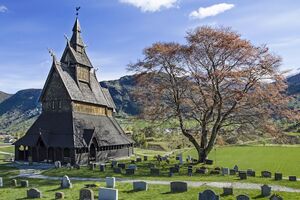Disitru: Difference between revisions
Jump to navigation
Jump to search
mNo edit summary |
m (→Society: - Marriage) |
||
| Line 45: | Line 45: | ||
==Society== | ==Society== | ||
===Marriage=== | |||
Helgtband - Permanent marriage, family-oriented, only one allowed, religious, divorce difficult, children 'higher status' (archaic) <br> | |||
Handfesta - 'Temporary' marriage, contractual, polygamy allowed (with restrictions), semi-religious (depends on state), same-sex marriage depends on state, 'lower status' children (archaic) <br> | |||
Eskerhlaup - Modern term means cohabitation + common-law marriage, older term also included concubinage, polgyamy allowed, legal protections depend on state, same-sex allowed, 'lowest status' children (archaic) | |||
==History== | ==History== | ||
Revision as of 16:38, 18 September 2019
 | |
 | |
| Regions with significant populations | |
|---|---|
| 18,231,116 | |
| Languages | |
| Old Hallic (liturgical) Tuske, Crethian, Svaldish, Noregrin | |
Dísitrú is an Tyric henotheistic and monolatrist religion based on the traditional beliefs and practices of the Hallanic peoples
Etymology and meaning
Beliefs
Practices
Scripture
Law
Society
Marriage
Helgtband - Permanent marriage, family-oriented, only one allowed, religious, divorce difficult, children 'higher status' (archaic)
Handfesta - 'Temporary' marriage, contractual, polygamy allowed (with restrictions), semi-religious (depends on state), same-sex marriage depends on state, 'lower status' children (archaic)
Eskerhlaup - Modern term means cohabitation + common-law marriage, older term also included concubinage, polgyamy allowed, legal protections depend on state, same-sex allowed, 'lowest status' children (archaic)